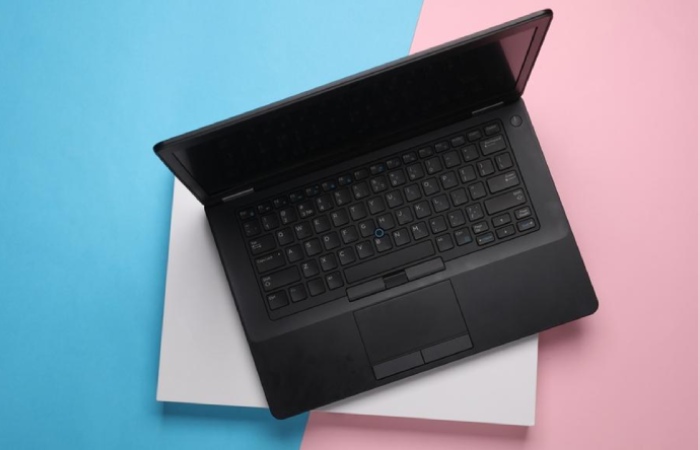Are you in the market for a brand new laptop, or maybe helping someone find the perfect one? The process can be overwhelming with so many options and features to consider. To ensure you get the best laptop for your needs, avoid these common mistakes and make an informed decision you won’t regret.

1. Not Knowing Your Budget
Not setting a budget before buying a laptop can lead to overspending or settling for a less capable machine. Without a clear budget, you may find yourself overwhelmed by the many options available, making it harder to make a decision.
Before you start shopping, determine how much you can afford to spend on a new laptop. This will help you focus on models within your price range. Make a list of the features you need and prioritize them according to your budget. Remember to consider additional costs like accessories and app subscriptions.
2. Not Researching What Is Available
Failing to research laptop models and features can result in buying a laptop that doesn’t meet your needs. This lack of information might lead you to purchase a model that doesn’t have the essential features you’re after or has poor performance in the tasks you need it for.
Take the time to research different laptop models and their specifications. Read reviews from other users and professional reviewers to get an idea of the laptop’s performance and reliability. Compare features and configurations across multiple brands to find the best match for your needs. Don’t rush the process! Thorough research will help you make a more informed decision.
3. Buying the Wrong Screen Size
Choosing the wrong screen size can make your laptop less practical for your intended use. A screen that’s too small can hinder productivity, while a screen that’s too large can reduce portability.
Consider how you will use your laptop daily. If you need portability, opt for a smaller screen size, typically between 11 and 14 inches. For tasks like graphic design or video editing, a larger screen of 15 to 17 inches might be more suitable. If possible, test different screen sizes in-store to see what feels right for your usage. And always pay attention to the accompanying weight. Even an extra pound can be a lot when strung over your shoulder while commuting or traveling.
4. Ignoring the Durability Factor
Overlooking a laptop’s durability can lead to frequent repairs or replacements, especially if the laptop is used by young children or during travel. Laptops without protective features are more susceptible to damage from drops, spills, and wear and tear.
Choose a laptop with built-in durability features such as a rugged design, spill-resistant keyboard, and reinforced hinges. Look for models with rugged certifications like the standard published by the United States Department of Defense (DoD) MIL-STD-810G standard for added protection if you intend to use your laptop on a job site. Investing in a sturdy carrying case is another way to help protect your laptop during travel. Prioritize durability to ensure your laptop can withstand everyday use and potential accidents.
5. Focusing Too Much on RAM
Focusing solely on RAM can mislead you into thinking it’s the most important aspect of performance. While important, RAM is just one component that contributes to overall system efficiency, and most users don’t need more than 8GB for everyday tasks.
Consider the entire system configuration, including the processor, storage type (SSD vs. HDD), and graphics capabilities. A balanced system with 8GB of RAM, a fast SSD, and a capable CPU will perform better than one with excessive RAM but poor in other areas. Evaluate your specific needs and choose a laptop with well-rounded specifications that fit your usage.

6. Extended Warranties That Don’t Cover What You Need
Extended warranties sometimes fail to cover important aspects like theft or accidental damage, making them less valuable. They can also be costly and may not align with the actual risk of hardware issues occurring within the extended period.
Carefully read the terms of any extended warranty before purchasing. Look for plans that cover accidental damage or theft if those are concerns for you. Consider the likelihood of needing repairs based on your laptop’s brand reliability and user reviews. Sometimes, investing in a comprehensive insurance policy or a more durable laptop can be a better use of your funds.
7. Paying for a Processor You Don’t Need
A high-end processor is unnecessary for basic tasks like web browsing and word processing. Spending extra on a high-performance processor is only needed for demanding applications like 3D modeling or gaming.
Evaluate your usage requirements before deciding on a processor. For general use, an Intel Celeron or Pentium, or AMD Athlon will suffice. If you need a bit more power, consider an Intel Core i3 or AMD Ryzen 3. The M1 chip is highly efficient and suitable for everyday tasks for Apple users, while the M2 offers a bit more power. Save money by avoiding high-end processors unless you need them for specific, demanding tasks.
8. Paying for Extra Storage Space You Won’t Use
Many laptops come with 500GB of storage, which is sufficient for most users. Paying for additional storage is only necessary if you have specific needs for large amounts of data, such as video editing or storing extensive media libraries.
Assess your storage needs based on your usage patterns. For most users, 256GB to 500GB is ample. If you find you need more space later, consider external drives or cloud storage solutions, which can be more cost-effective. Choose a laptop with storage that fits your current needs and expand as necessary.
9. Ignoring the Types of Ports
Ignoring the types of ports available on a laptop can lead to connectivity issues with your peripherals. Since ports cannot be upgraded, it’s essential to consider current and future connectivity needs.
Check the laptop’s port selection to ensure it has all the connections you need, such as USB-C, HDMI, and SD card slots. Think about the devices you frequently use and any additional peripherals you might add in the future. Investing in a laptop with the right ports from the start can save you from the hassle and expense of adapters and docking stations later on.
10. Ignoring Battery Backup
Overlooking battery backup can be a major inconvenience, especially if you’re frequently on the move. Different laptops have varying battery capacities, and choosing one with inadequate battery life can limit your mobility and productivity.
For those who travel often or work remotely, opt for a laptop with a longer battery life, such as one with a 9-cell battery. Check manufacturer specifications and user reviews for real-world battery performance. Consider power-saving features and settings to extend battery life. If needed, be aware of options for laptop battery replacement to ensure your device remains reliable over time. Always evaluate your usage patterns and choose a laptop that can keep up with your daily demands without constant recharging.
11. Getting a Laptop When a Tablet Will Do
Depending on the use case and who will be using the device, a tablet might be the better option. Buying a laptop when a tablet would suffice can lead to unnecessary expenses and bulk. A tablet can be more convenient and portable for basic tasks like browsing, reading, and light productivity.
When assessing the laptop vs. tablet decision, consider your actual needs before deciding on a laptop. If your primary activities include web browsing, streaming, and using lightweight apps, a tablet with a detachable keyboard might be a better fit. Tablets are often cheaper, lighter, and have longer battery life. Consider devices like the iPad or Microsoft Surface, which offer a good balance of functionality and portability.

Make an Informed Choice
Buying a new laptop doesn’t have to be daunting. By avoiding these common pitfalls and considering your specific needs, you can find a laptop that fits your lifestyle and budget. Take the time to research, set a clear budget, and prioritize the features that matter most to you. With the right approach, you’ll be confident in your choice and ready to enjoy all the benefits of your new device. Happy laptop hunting!

